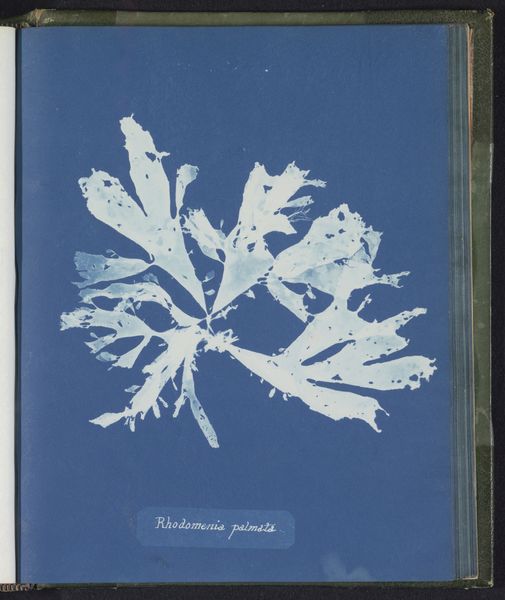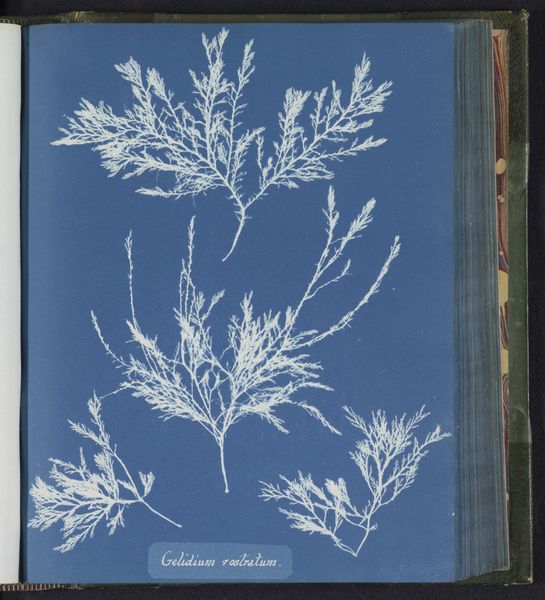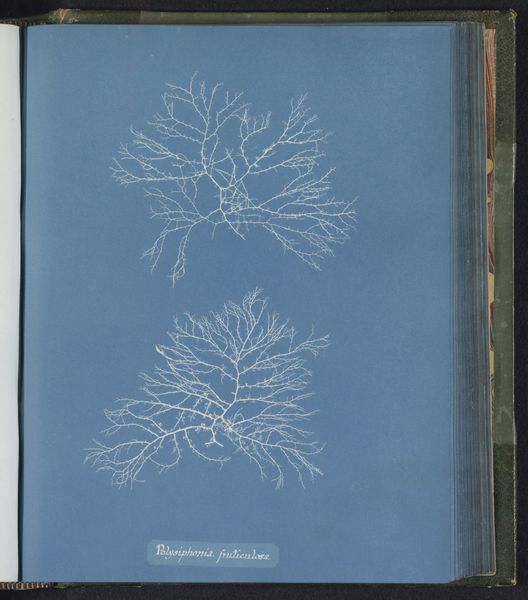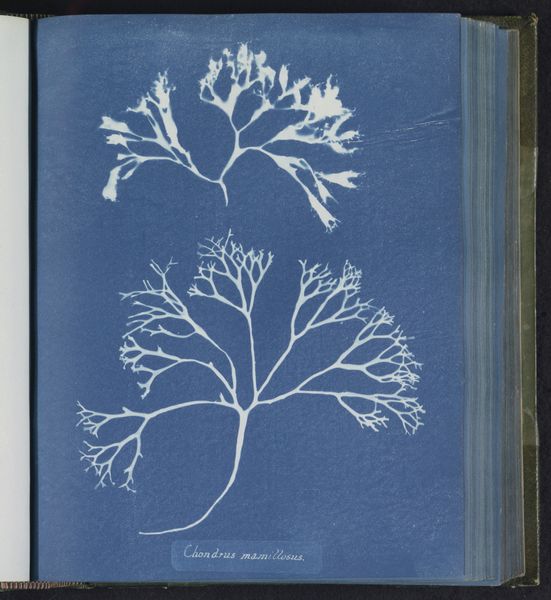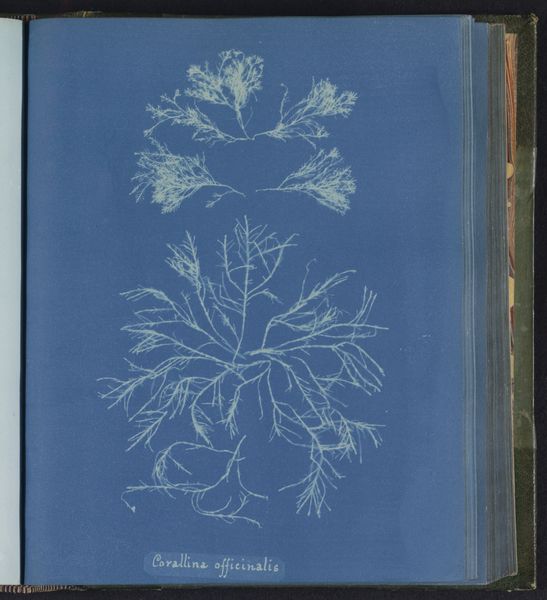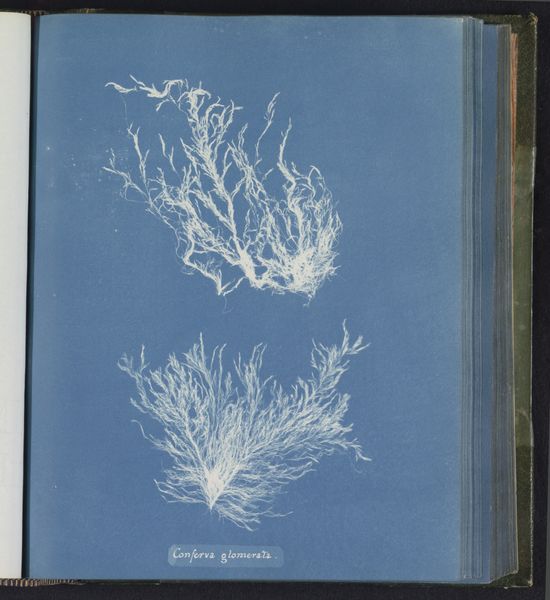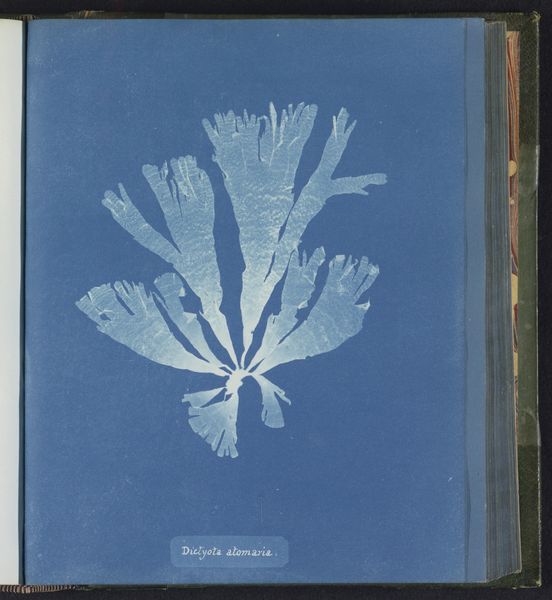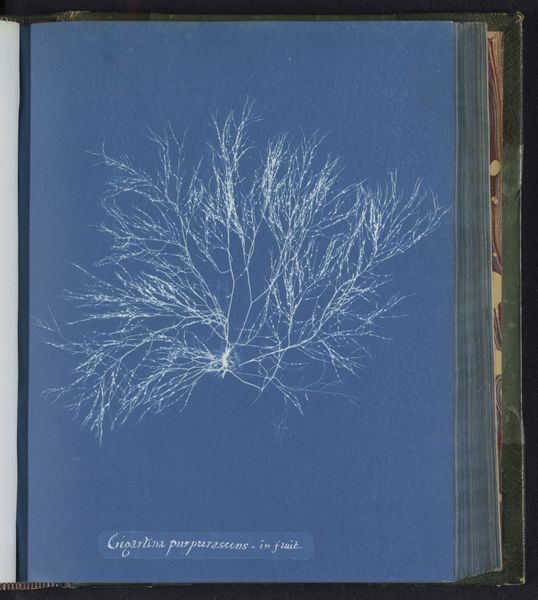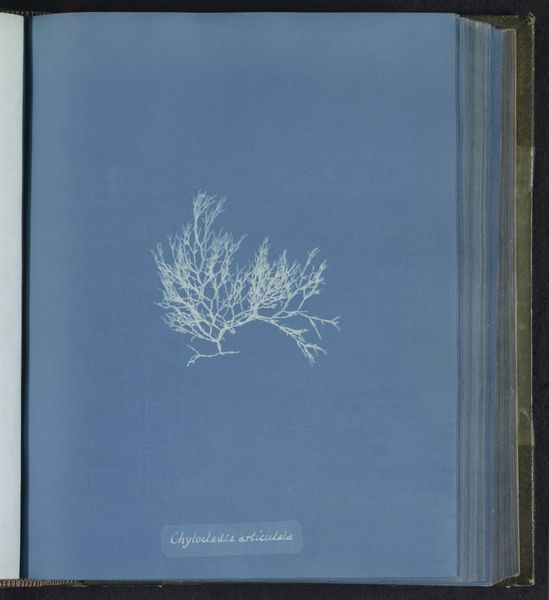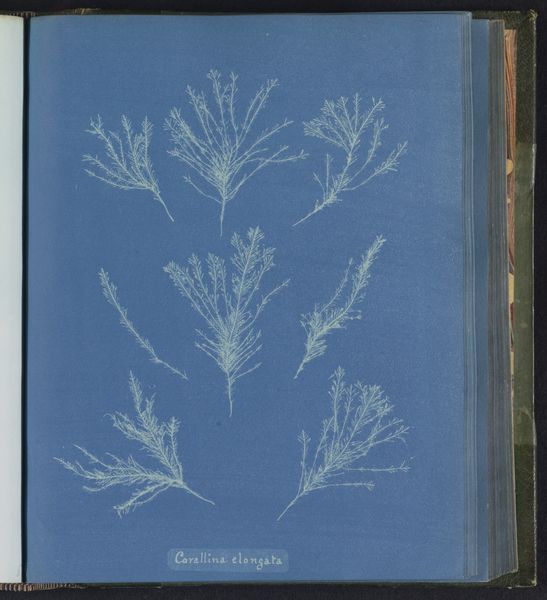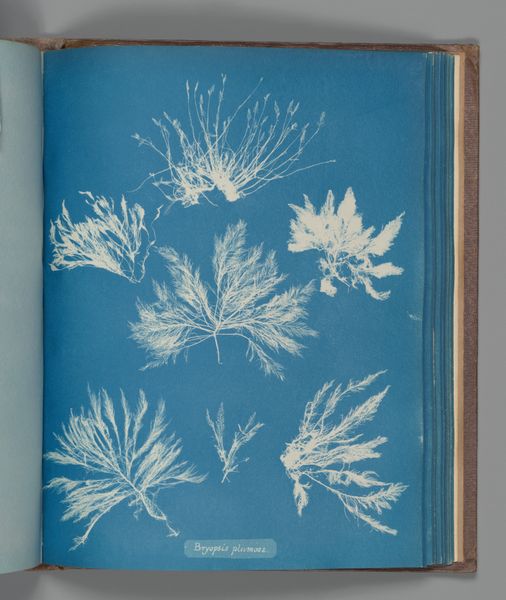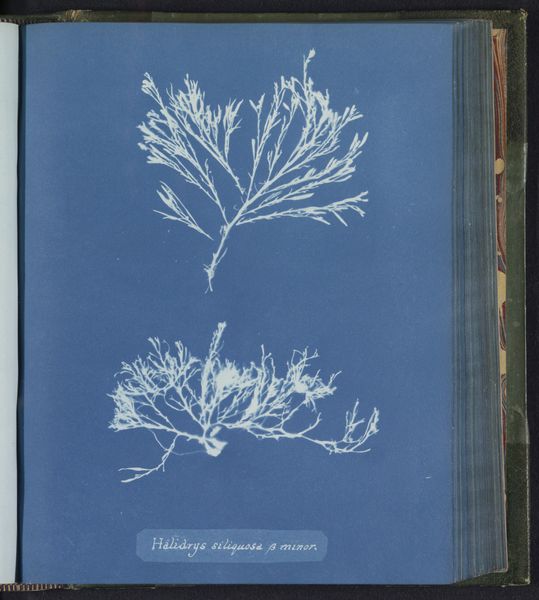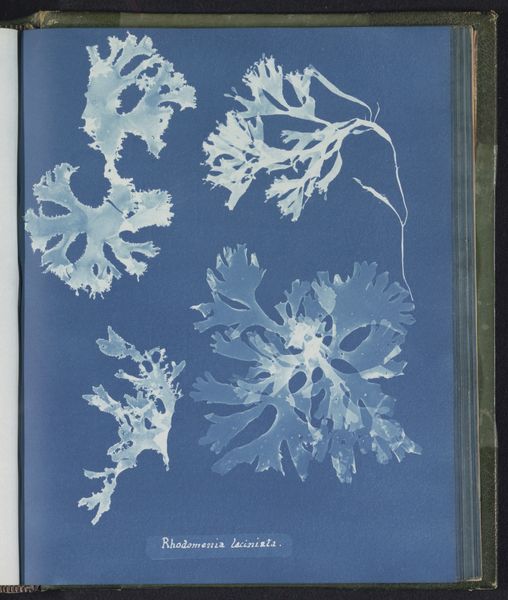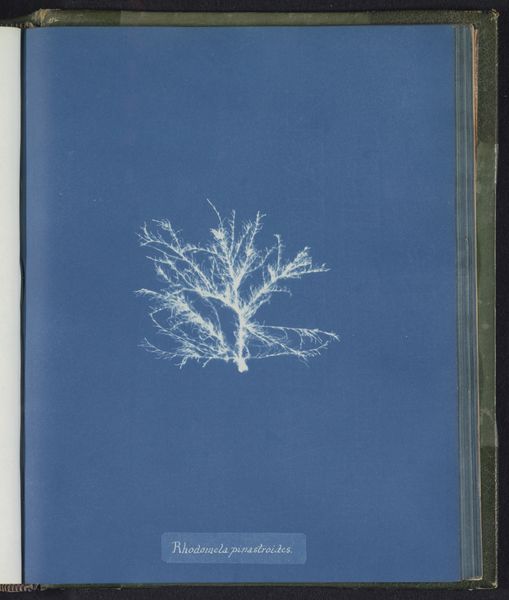
print, cyanotype, photography
#
vegetal
#
16_19th-century
# print
#
cyanotype
#
photography
#
realism
Dimensions: height 250 mm, width 200 mm
Copyright: Rijks Museum: Open Domain
Anna Atkins made this cyanotype of Dictyota dichotoma, a type of brown algae, in the mid-19th century, pioneering a technique that combined art and science. In the early Victorian era, the scientific classification of the natural world was rapidly accelerating. Photography was very new, and cyanotypes offered a relatively simple way to create accurate botanical records. Think of it as a marriage between the Victorian scientific passion for cataloging nature and the burgeoning technologies of visual reproduction. Atkins was part of a circle of scientists and photographers. Her work challenges traditional notions about who gets to produce knowledge. She was a woman making scientific images at a time when institutions were often dominated by men. By examining the context in which art is made, we can gain a better understanding of the social and institutional structures that shape it. To learn more, you can research Victorian science and the history of photography.
Comments
No comments
Be the first to comment and join the conversation on the ultimate creative platform.
